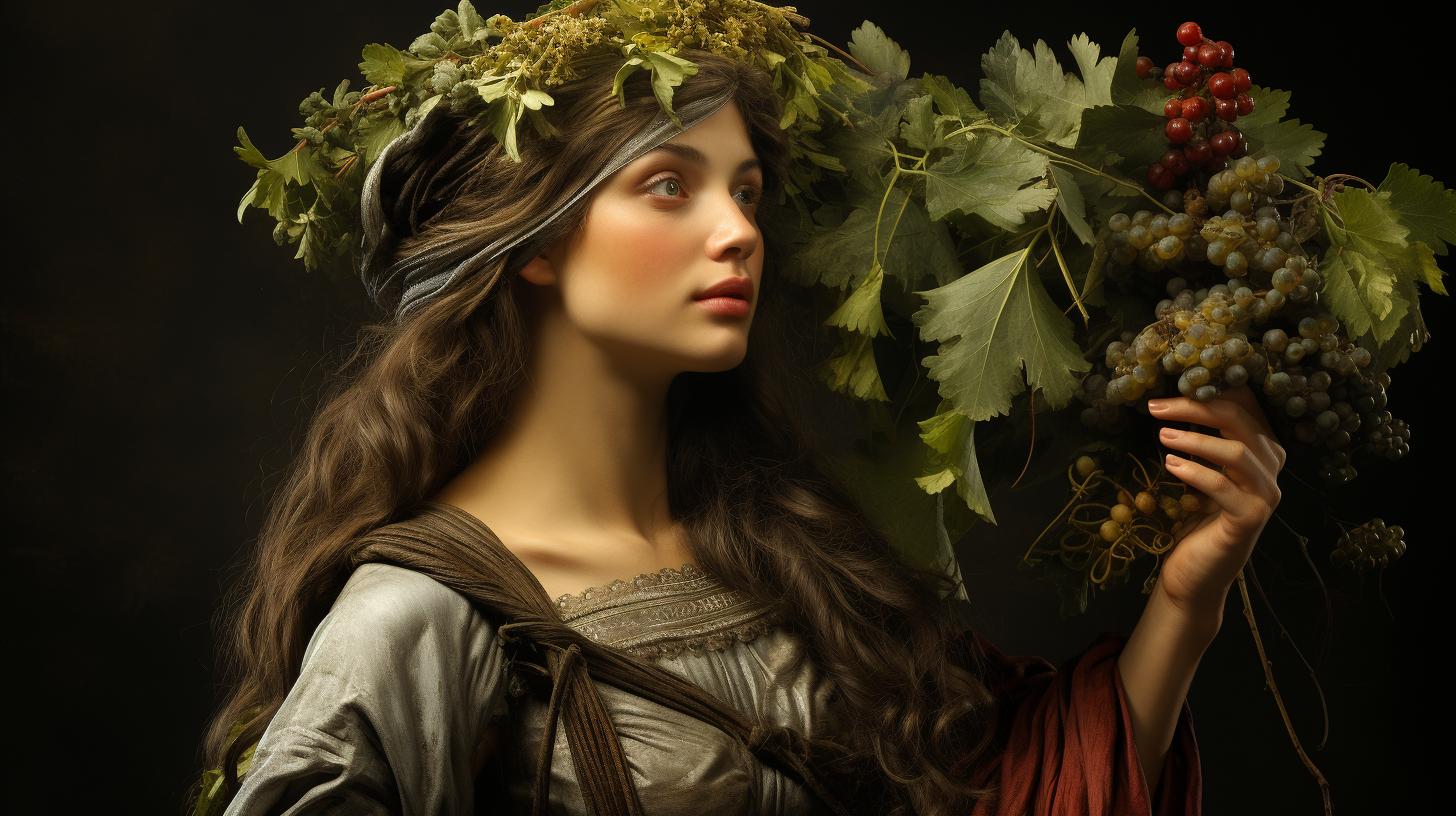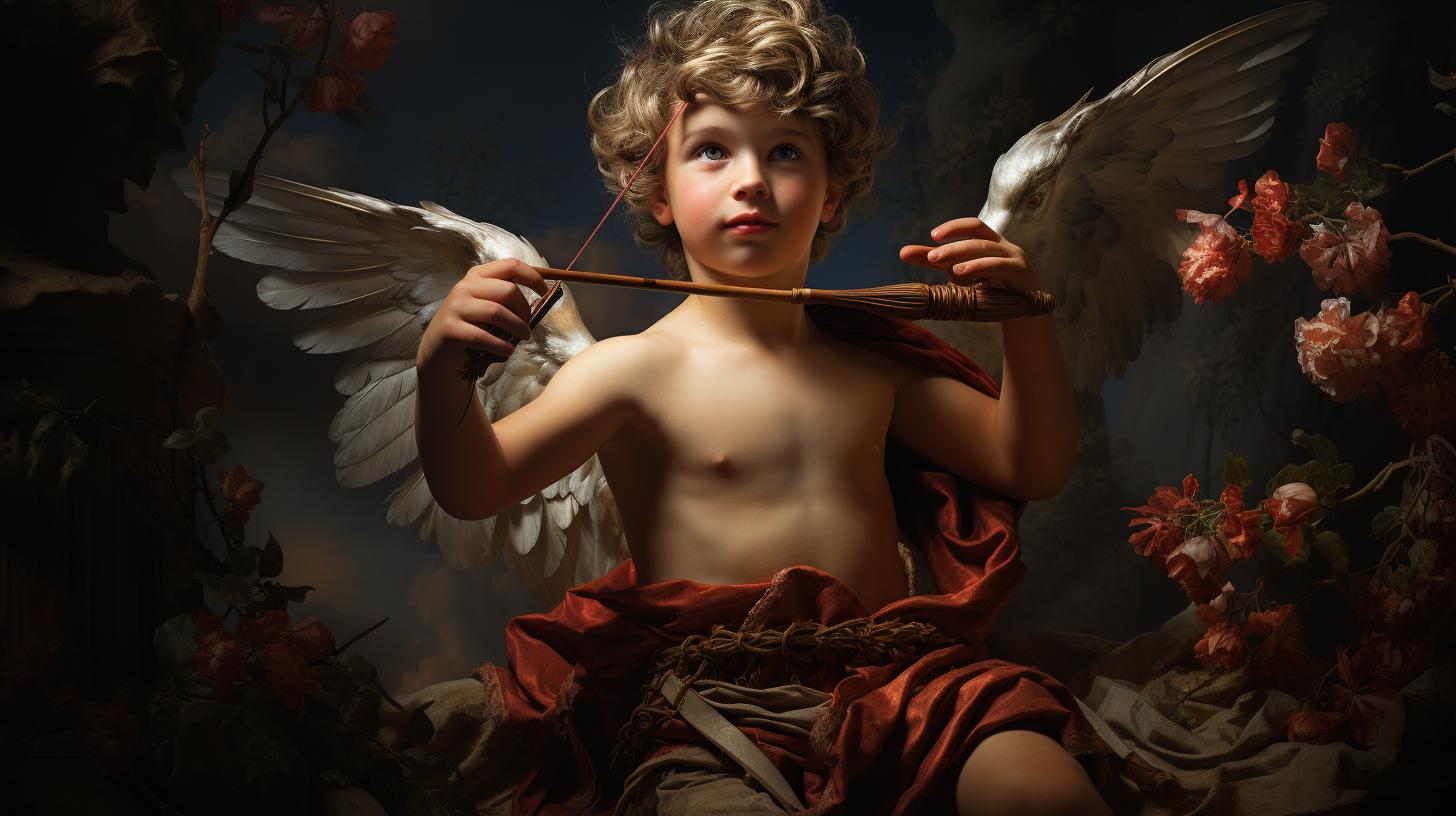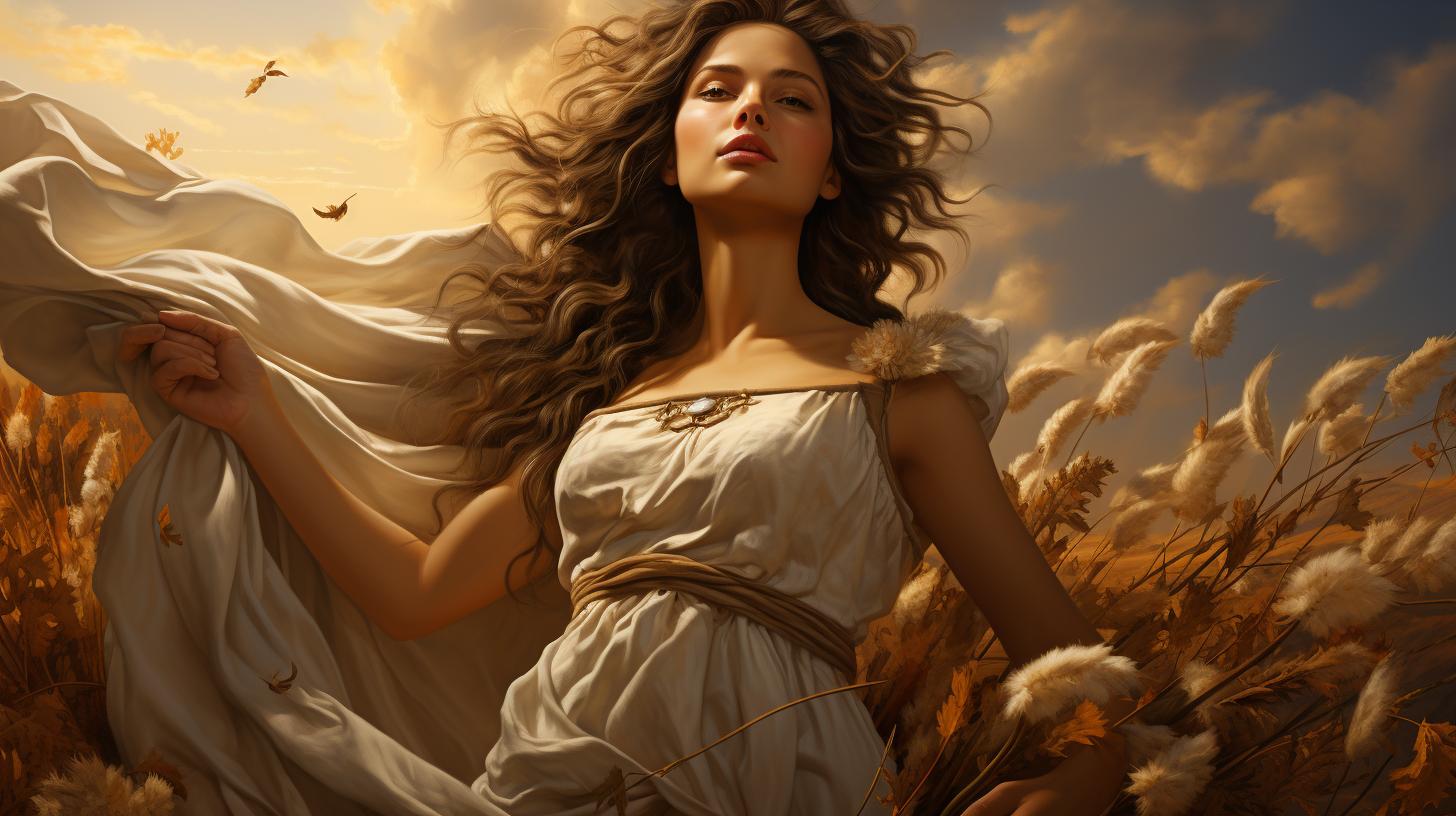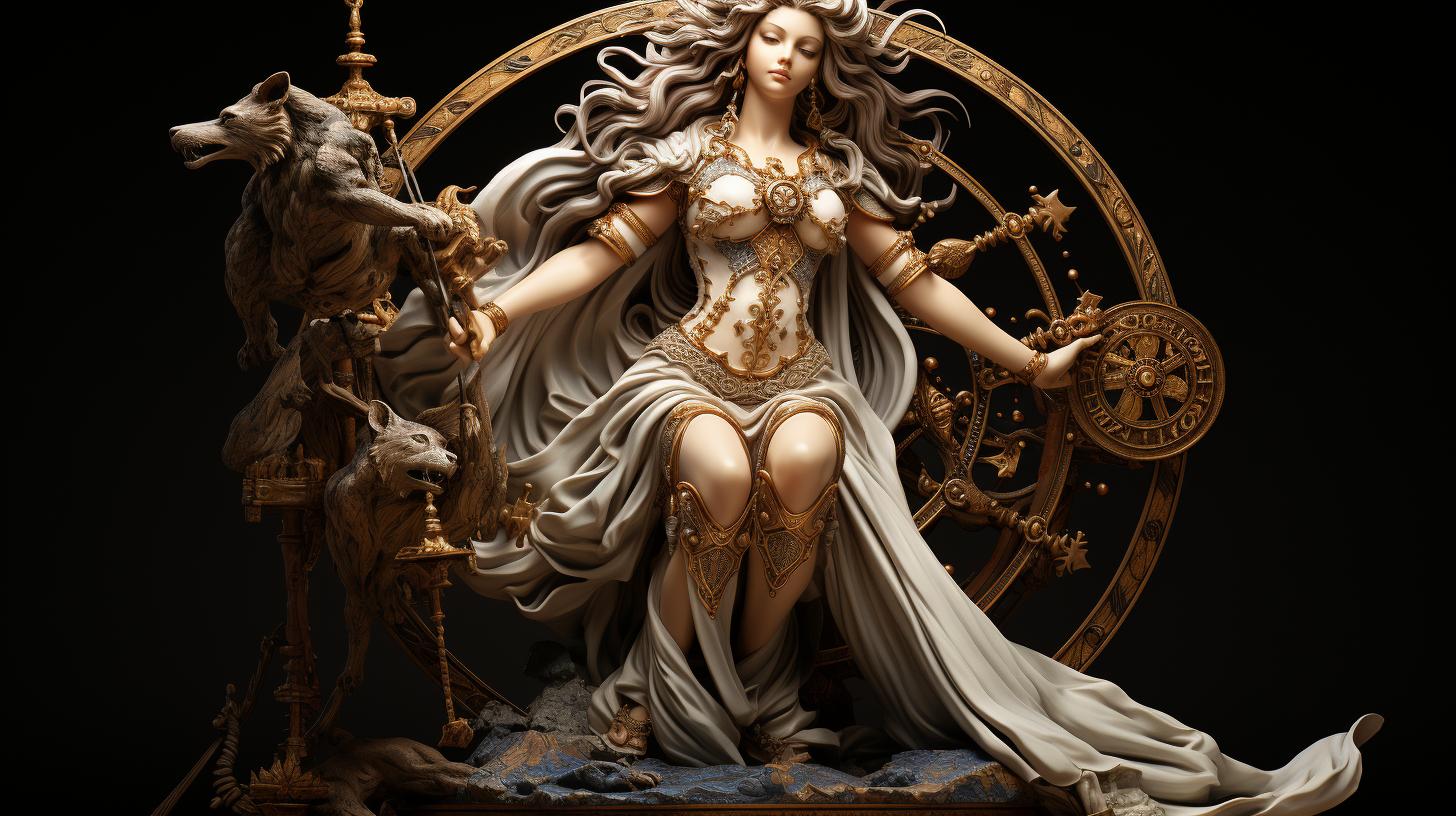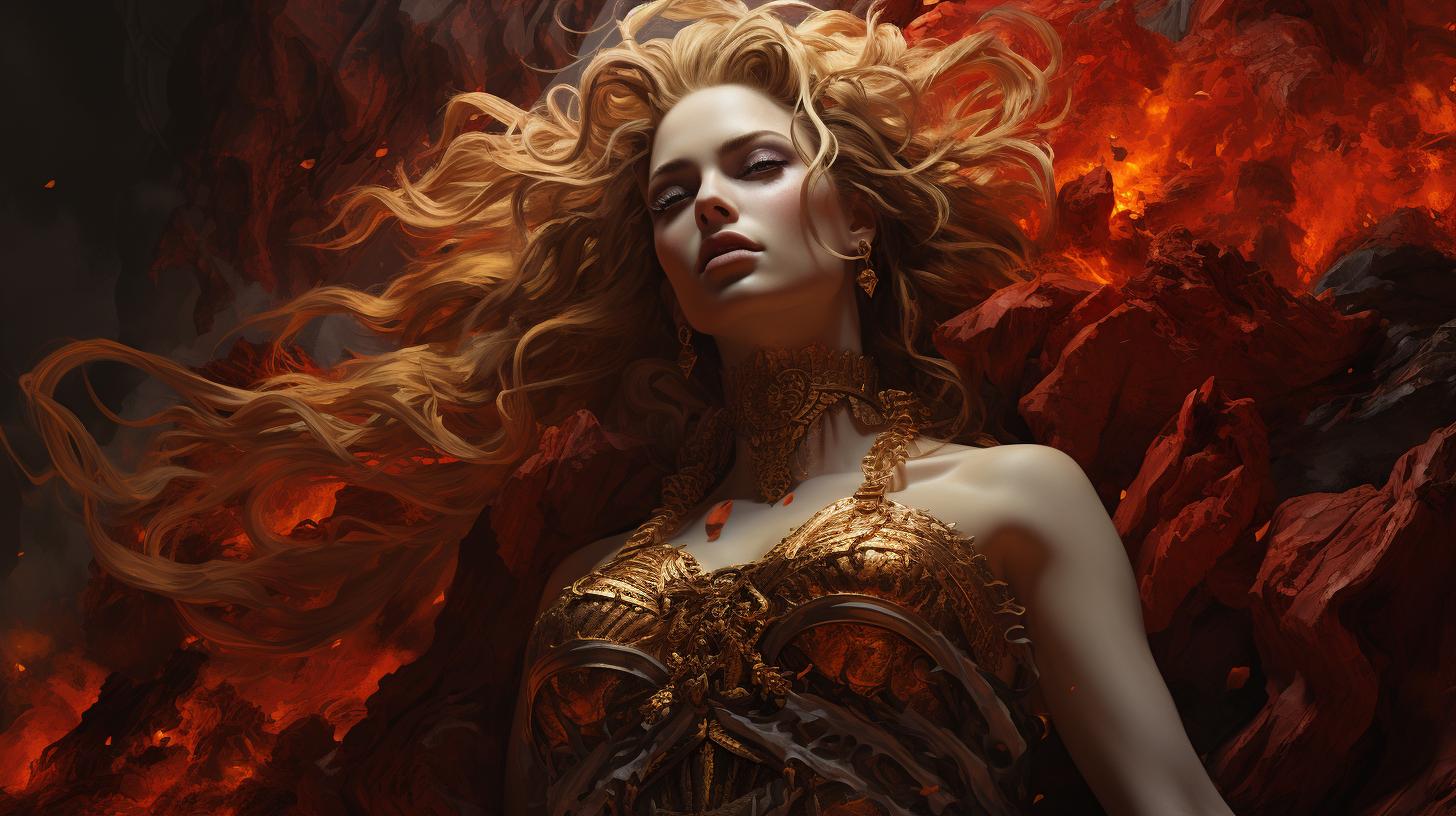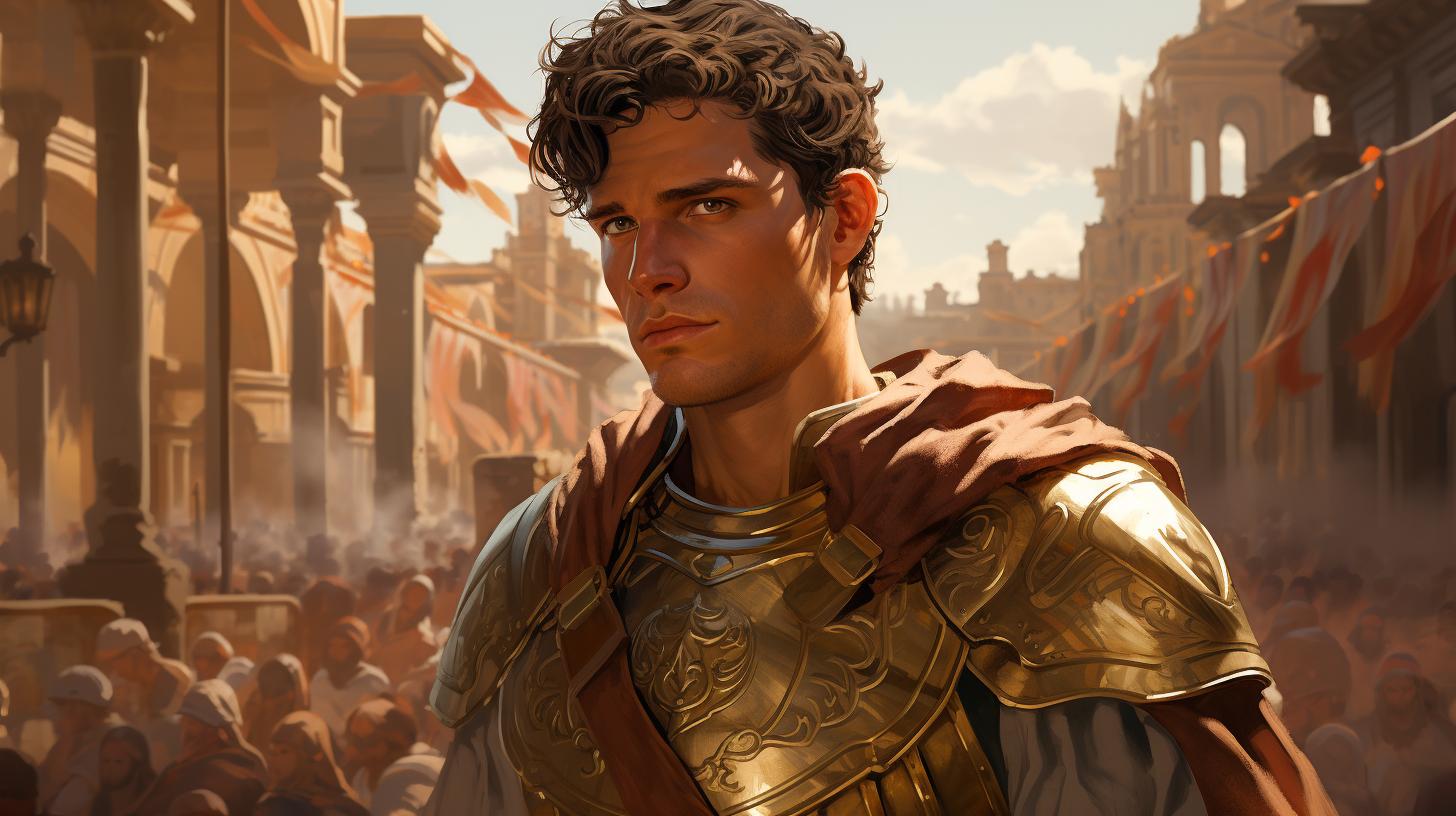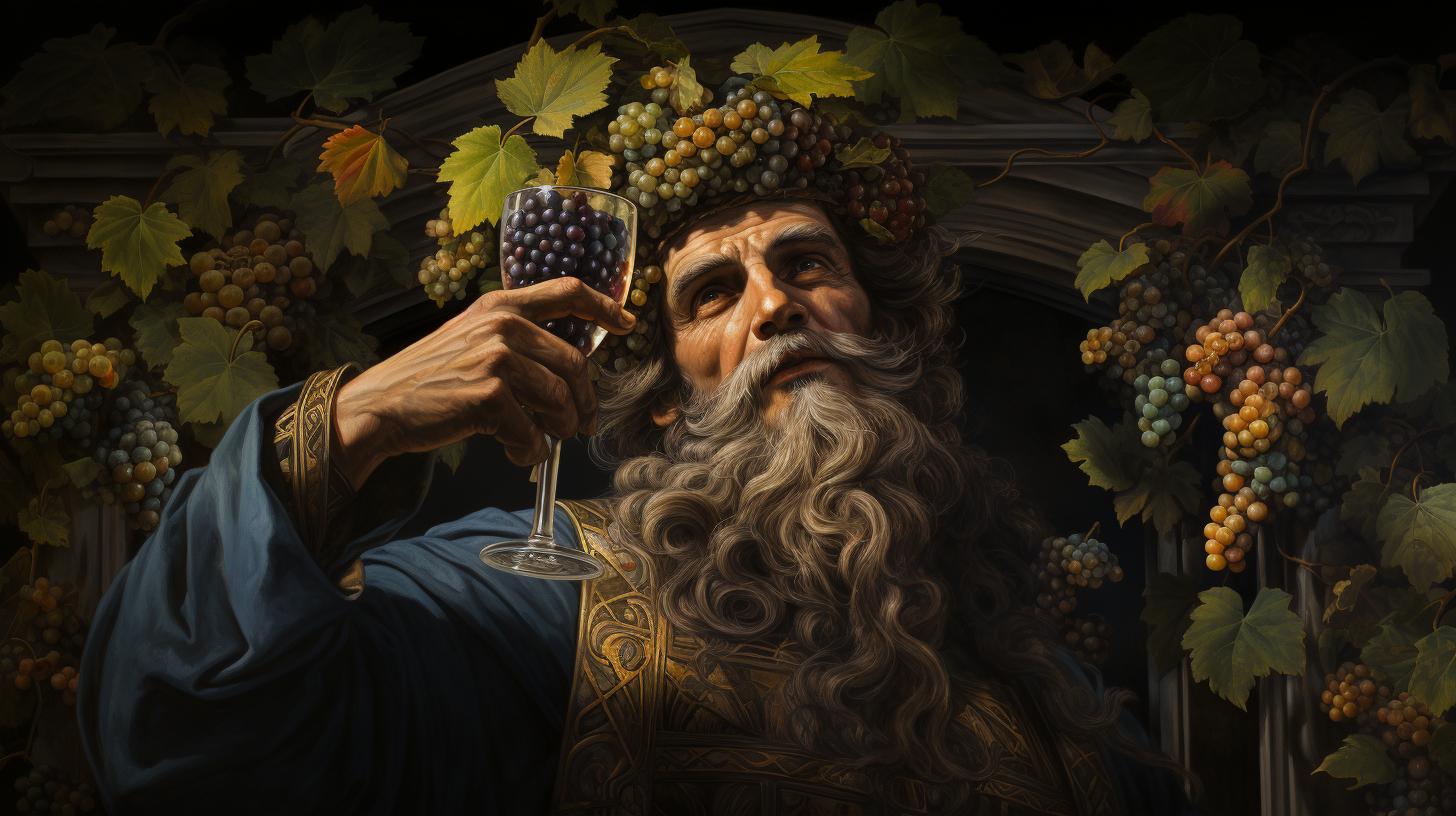Roman Goddess Fortuna: Unveiling the Divine Power of Luck and Destiny

Fortuna, the Roman goddess of luck and fortune, has long captured the imaginations of ancient Romans and continues to intrigue us today. From her origins as a minor deity to her prominent role in Roman mythology, Fortuna’s influence extends beyond the Roman world.
With attributes symbolizing luck and fortune, she holds a significant place in art, literature, and contemporary beliefs. Explore the mysteries of Fortuna’s oracle, the impact she had on personal and professional aspects, and her connections with other gods.
Join us on a journey to unravel the captivating power of the Roman goddess Fortuna.
History of the Roman Goddess Fortuna
Fortuna, a prominent deity in ancient Rome, has a rich history that encompasses her origins, role in Roman mythology, and worship by the Roman people. Understanding the historical context surrounding Fortuna provides insight into the significance and reverence she garnered throughout the Roman Empire.
Origins and Development
Fortuna’s origins trace back to the earliest Roman civilization, where she evolved from the Etruscan goddess known as “Tyche.” As Rome expanded and absorbed various cultures, her attributes and symbolism underwent transformations, eventually solidifying her position as the goddess of luck and fortune.
Role in Roman Mythology
Within Roman mythology, Fortuna held a crucial role. She was believed to possess the power to bestow both good and bad fortune upon mortals, influencing their lives in unpredictable ways. Through various myths and tales, Fortuna’s influence on the destiny of individuals and Rome itself became evident.
Worship and Cults
Fortuna’s worship was prevalent in Rome, with numerous cults dedicated to her. Temples and sanctuaries were erected in her honor, and worshippers sought her favor through rituals and offerings. Her importance extended beyond individuals, as the imperial cult and state religion recognized and revered her as one of the central deities.
Exploring the history of the Roman goddess Fortuna provides a foundation for understanding her significance, as well as the cultural and religious aspects associated with her worship in ancient Rome.
Who was Fortuna?
In the realm of Roman mythology, Fortuna was a revered deity associated with various aspects of human existence. Let’s explore the intriguing attributes, symbolism, and notable depictions of this enigmatic goddess.
Attributes and Symbolism
Fortuna was often depicted holding a cornucopia, representing abundance and prosperity, while a ship’s rudder symbolized her control over fate and navigation through life’s turbulent waters. Her blindfold alluded to the unpredictable nature of luck, reminding mortals that fortune could favor anyone, regardless of their station.
Associations with Luck and Fortune
Fortuna personified the capriciousness of fortune, where chance and luck played pivotal roles in shaping individuals’ lives. Romans sought her favor through prayers and offerings, hoping for a change in circumstances or an advantageous turn of events.
She was believed to govern both good and bad luck, reminding mortals of the ever-changing nature of fate.
Depictions in Art and Literature
The artistic representation of Fortuna varied across ancient Roman sculptures and paintings. She was often portrayed with a wheel, also known as the Wheel of Fortune, symbolizing the constant cyclicality of life’s ups and downs.
In literature, Fortuna’s presence pervaded various writings, including Ovid’s works, where her role in shaping human destiny was vividly showcased.
Exploring the intriguing facets of Fortuna’s existence and her role in ancient Roman society sheds light on the complexities of human perception and the eternal quest for understanding fortune’s whims.
Fortuna in Roman Society
Fortuna played a vital role in the daily lives of ancient Romans, permeating various aspects of their society. Her influence extended beyond personal beliefs, impacting social structures and official institutions. Let’s explore the significance of Fortuna in Roman society.
Influence on Daily Life
Fortuna’s presence was felt in every aspect of daily life, from birth to death. Romans believed that she controlled one’s destiny and governed the fluctuations of luck. Citizens sought her favor through prayers, rituals, and offerings, hoping for her benevolence in matters of health, wealth, and success.
Imperial Cult and State Religion
The Imperial cult and state religion of ancient Rome acknowledged Fortuna as a prominent deity. Emperors and political leaders sought her blessings to ensure the prosperity and stability of the empire.
Fortuna’s temples and shrines were widespread throughout the Roman territory, and her worship formed an integral part of public ceremonies and festivals.
Importance in Early Roman Literature
Early Roman literature, such as the works of Livius Andronicus and Ennius, often featured references to Fortuna. Poets and writers depicted her as both a capricious force and a divine protectress.
Fortuna’s character and attributes were intricately woven into the fabric of Roman literature, portraying her as a powerful deity influencing the fates of mortals.
Discover the enduring legacy and the enigmatic significance of Fortuna as we delve deeper into her relationships with other Roman gods and her symbolic representations in art, literature, and popular culture.
Fortuna’s Relationship with Other Roman Gods
Fortuna, the Roman goddess of luck and fortune, had significant connections with other deities in the Roman pantheon . Her relationships with Venus and Juno showcased the intricate interplay between fortune and love, as well as highlighting Fortuna’s association with femininity and fertility.
While Venus represented erotic love and beauty, Juno embodied the protective aspect of feminine power. Fortuna’s presence alongside these goddesses often symbolized the intersection of luck, love, and protection in various aspects of life.
Connections with Venus and Juno
- Venus, the goddess of love and beauty, frequently crossed paths with Fortuna, reflecting the intertwined nature of love and luck. Their association often manifested in situations where fortune played a role in romantic relationships and desired outcomes.
- Juno, the goddess of marriage and childbirth, shared a connection with Fortuna in their roles as protectors and guardians.
Their combined influence shed light on the influential power that luck and fortune held over the realms of love, marriage, and family.
Interactions with Jupiter and Mercury
- Jupiter, the king of gods, and Fortuna often interacted, highlighting her influence on matters of grand-scale fortune and destiny. Fortuna’s alignment with Jupiter demonstrated her connection to the concept of cosmic order and the divine forces that governed the universe.
- Mercury, the god of commerce and communication, frequently crossed paths with Fortuna as well.
Their connection showcased how luck and fortune played a crucial role in matters of trade, negotiations, and travel.
Influence on Other Gods and Goddesses
- Fortuna’s influence was not limited to just a few gods; she impacted various other deities within the Roman pantheon. Whether it was Mars, the god of war, or Apollo, the god of prophecy and arts, Fortuna’s presence heightened the significance of luck and fortune in these spheres of influence.
- Similarly, Fortuna’s interactions with Neptune, the god of the sea, and Ceres, the goddess of agriculture, showcased her role in matters related to seafaring voyages, agriculture, and the abundance of natural resources.
Fortuna Beyond the Roman World
Fortuna’s influence extends far beyond the boundaries of the Roman world, leaving a lasting impact on mythologies, traditions, beliefs, and society itself.
Let’s explore how Fortuna’s presence can be found in various cultures around the globe, shaping their narratives and belief systems.
Fortuna in Mythologies of Different Cultures
Fortuna’s essence transcended the Roman realm, finding her place in the mythologies of different cultures. In Greek mythology, she is closely associated with Tyche, the goddess of fortune. In Norse mythology, she shares similarities with the goddess Norn, who weaves the threads of fate.
Other cultures, such as Celtic, Egyptian, and Mesopotamian, also have their own interpretations of a deity embodying luck and destiny.
Influence on Modern Traditions and Beliefs
The legacy of Fortuna continues to shape modern traditions and beliefs. People around the world, even outside of Roman culture, still invoke her name when seeking good fortune. Many rituals and practices associated with luck and destiny can be traced back to the influence of Fortuna.
Her symbol, the wheel of fortune, remains a powerful motif in contemporary societies, reminding us of the ever-changing nature of luck and destiny.
Legacy and Continuing Impact on Society
Fortuna’s lasting impact on society is undeniable. Her portrayal in art, literature, and popular culture keeps her memory alive. From ancient Roman statues to modern-day paintings, Fortuna’s image serves as a reminder of humanity’s fascination with luck and fortune.
The concept of fortune itself, with its unpredictable nature, still holds sway in our daily lives, reminding us of the allure and mystery surrounding the Roman goddess Fortuna.
The Worship and Rituals Associated with Fortuna
The worship of Fortuna, the revered Roman goddess, was accompanied by a rich tapestry of rituals and traditions. Devotees sought her favor and blessings through various religious practices, creating a deep connection with the goddess of luck and fortune.
Temples and Sanctuaries
Temples dedicated to Fortuna served as sacred spaces for her followers to express their devotion. These awe-inspiring structures, adorned with magnificent statues and elaborate artwork, provided a serene environment for worship and reflection.
Festivals and Celebrations
The worship of Fortuna was celebrated through vibrant festivals and joyous events held throughout the year. During these festivities, people engaged in lively processions, music, dance, and feasts, expressing their gratitude for Fortuna’s blessings and seeking her continued favor.
Practices for Seeking Favor from Fortuna
- Offerings: Worshippers would bring gifts and offerings to Fortuna as a sign of devotion and to seek her favor. These offerings often included flowers, incense, candles, and symbolic objects associated with prosperity and good luck.
- Prayers and Invocations: Devotees would utter heartfelt prayers and invocations to Fortuna, expressing their desires and seeking guidance in life.
These spiritual supplications aimed to establish a personal connection with the goddess.
- Divination: Individuals would employ various divination techniques, such as reading tarot cards, casting lots, or consulting oracles, to gain insights into their future and determine the best courses of action to align with Fortuna’s blessings.
By participating in these rituals and practices, followers hoped to cultivate a closer relationship with Fortuna and experience her benevolent influence in their lives.
Unveiling the Mysteries of Fortuna’s Oracle
Explore the hidden realm of Fortuna’s Oracle, where divination and prophecy played significant roles in ancient Rome. Delve into the rich tapestry of knowledge and superstition surrounding this sacred practice, deepening our understanding of the Roman goddess Fortuna.
.
.
.
Divination and Prophecy in Ancient Rome
Divination held a pivotal role in ancient Roman society, with individuals seeking guidance from the gods for important decisions and foresight into the future. The Romans employed various techniques, including haruspicy, augury, and astrology, to tap into the divine wisdom and interpret signs and omens.
These intricate practices involved skilled priests and seers who specialized in deciphering the will of the gods. The guidance derived from the oracles played a crucial role in shaping both personal and public affairs, serving as a compass for Romans navigating the complex domain of everyday life.
The Role of Oracles in Fortuna’s Worship
Fortuna’s worship was intimately intertwined with the oracular tradition in ancient Rome. Devotees sought the favor of the goddess by consulting oracles dedicated to her, where prophecies and insights into their destinies were revealed.
These oracles acted as intermediaries between mortals and Fortuna, providing glimpses into the threads of fate and offering advice on how to navigate life’s challenges. They fostered a deep spiritual connection with Fortuna, allowing individuals to invoke her blessings and align their actions with her divine will.
Insights and Guidance from Fortuna’s Oracle
Visiting Fortuna’s oracle was an experience steeped in mystique and reverence. Seekers would arrive with questions, seeking clarity and direction. The oracles, in their trance-like state, would communicate messages from Fortuna, providing insights, warnings, and guidance to those who sought her wisdom.
Fortuna’s oracle served as a source of solace and enlightenment, shedding light on paths yet to be traversed. The messages received were interpreted with care and reverence, influencing decisions and shaping the lives of those who entrusted themselves to Fortuna’s divine wisdom.
Fortuna’s Influence on Personal, Professional, and Social Aspects
Fortuna, the Roman goddess of luck and fortune, held a significant impact on various aspects of Roman society. Her presence extended beyond the realm of mythology and influenced individuals’ personal lives, professional endeavors, and the structure of Roman social hierarchy.
Luck and Fortune in Individual’s Lives
Fortuna’s role in individuals’ lives revolved around the concept of luck and fortune. Romans believed that Fortuna had the power to bestow blessings or misfortunes upon individuals, shaping their destinies.
Whether it was favorable outcomes in personal relationships, health, or daily life, the influence of Fortuna was believed to be ever-present.
Impact on Business and Economic Ventures
In the realm of business and economic ventures, understanding and appeasing Fortuna was crucial. Romans sought her favor to ensure success in trade, investments, and prosperity. Fortuna’s influence was taken seriously, and rituals were performed and prayers offered to secure her blessings in financial endeavors.
The Concept of Fortuna in Roman Social Structure
Fortuna’s influence permeated throughout the hierarchical structure of Roman society. The concept of Fortuna played a crucial role in determining status, power, and social standing. Fortuna’s favor or disfavor could impact one’s reputation and position in society, often influencing their interactions with others and their overall social status.
Exploring the Modern Interpretations of Fortuna
As we dive into the modern interpretations of Fortuna, we find her presence extending beyond ancient Rome into various aspects of art, literature, popular culture, and contemporary beliefs. Let’s explore the different perspectives that shed light on the enduring legacy of this Roman goddess.
Fortuna in Art, Literature, and Popular Culture
Fortuna’s influence is evident in numerous artistic and literary works, serving as a symbol of luck, fortune, and fate. Renaissance paintings often depict her captivating presence, while literature draws inspiration from her enticing powers.
In popular culture, Fortuna’s character often appears in films, novels, and even video games, portraying her as a force to be reckoned with.
Philosophical and Psychological Perspectives
From a philosophical standpoint, Fortuna’s concept raises intriguing questions about determinism versus free will and the role luck plays in shaping our lives. Psychologically, Fortuna represents our innate desire for control over uncertainty and the pursuit of favorable outcomes.
Exploring these perspectives provides valuable insights into human nature and our relationship with fortune.
Contemporary Practices and Beliefs Surrounding Fortuna
In modern times, various practices and beliefs surrounding Fortuna continue to thrive. Some individuals seek to connect with her through personalized rituals or meditative practices, hoping to attract good luck or navigate uncertain situations.
Others find inspiration in Fortuna’s archetype, embracing the idea that they can shape their own destinies through positive thinking and intentional actions.
- Acknowledging Fortuna’s enduring influence across diverse fields reinforces her significance in today’s society.
- Art, literature, and popular culture provide avenues for continued exploration and reinterpretation of Fortuna’s themes.
- Philosophical and psychological perspectives offer deeper insights into the human fascination with luck and the search for control.
- Contemporary practices and beliefs surrounding Fortuna reflect the enduring relevance of her archetype in navigating uncertainty and pursuing favorable outcomes.
Through these diverse interpretations, Fortuna’s timeless essence continues to captivate and inspire individuals around the world, leaving an indelible mark on our collective consciousness.
…













